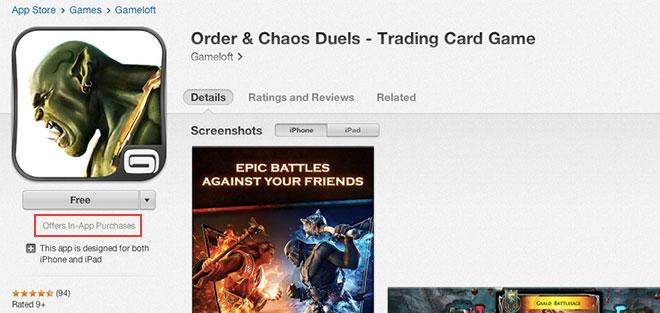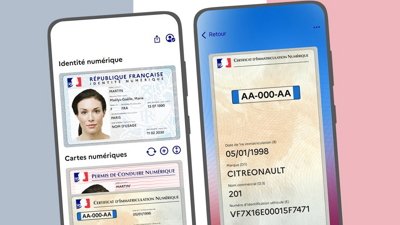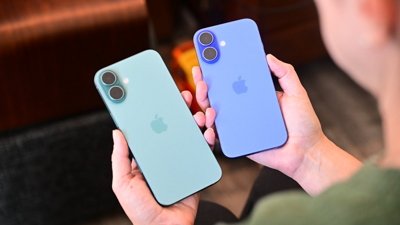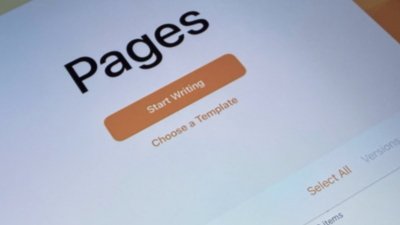As part of a settlement regarding overly lax in-app purchase limitations, Apple on Monday sent out to iTunes account holders what appears to be a mass email, asking those who were charged for unauthorized purchases by minors to fill out a refund form.
It is unknown how many emails Apple sent out, or to whom, but from the generalized wording it seems like the company is delivering the correspondence to a large swath of iTunes account holders. More specifically, the emails are apparently targeted at users who recently made in-app purchases.
From Apple's letter:
Dear iTunes account owner,Apple is committed to providing parents and kids with a great experience on the App Store. We review all app content before allowing it on our store, provide a wide range of age-appropriate content, and include parental controls in iOS to make it easy for parents to restrict or disable access to content.
We've heard from some customers that it was too easy for their kids to make in-app purchases. As a result, we've improved controls for parents so they can better manage their children's purchases, or restrict them entirely. Additionally, we are offering refunds in certain cases.
The email goes on to note that if some in-app purchases happened to be made without parental consent, users may request a refund by filling out a form. The company will review the request and respond via email when a decision has been made.
In January, Apple reached a settlement with the U.S. Federal Trade Commission in which the company agreed to modify the in-app purchase process to ensure each purchase was expressly authorized by the consumer. The company also earmarked $32.5 million for refunds. Earlier this month, Apple had yet to introduce the promised changes as a Mar. 31 deadline looms.
The issue stems from the in-app purchasing system, which made it too easy for children to rack up enormous real world bills after buying virtual game currency. The FTC announced in early 2011 that it would investigate iTunes' in-app purchasing system after receiving complaints from consumers.
At the time, Apple's method employed a time-sensitive lock window in which a user can enter a password to buy in-app content and make additional purchases without re-entering their pass phrase.
Those who have not yet received the email can sign in to iTunes to review past purchases, and if a discrepancy is found, use a special link to request a refund. All requests must be submitted by Apr. 15, 2015.
 Mikey Campbell
Mikey Campbell







-m.jpg)






 William Gallagher
William Gallagher
 Malcolm Owen
Malcolm Owen


 Chip Loder
Chip Loder
 Mike Wuerthele
Mike Wuerthele




-m.jpg)






9 Comments
I received this email from Apple too a few hours ago.
This sounds like a real easy way for scammers and dishonest people to scam Apple.
Parents should be responsible for their own children. What's to stop people from abusing this and submitting bogus claims to Apple?
I don't have any whiny brats running around that I can use as an excuse, but I've made plenty of in app purchases, easily many hundreds worth.
What's to stop somebody like me from filing a claim with Apple, and saying that some dumb kid made the in app purchase and not me?
I'm honest, so I won't, but I bet that there are those who would.
Hopefully Apple is extremely diligent when examining and approving some of these claims. As a sometimes Apple shareholder, anybody ripping off Apple is ripping off me, and hopefully irresponsible and lazy parents will learn to take care of their kids.
Apple II - I understand and agree with you about parents being responsible for their children. However, I was caught by the "in-app purchase virus" a year or two back. It turned out that IAP were allowed without ANY authentication whatsoever. This is a major security flaw. I have turned off IAP on all 5 of our iPads, 2 iPhones, and an ipod touch. It will never be turned on again and left on. The exception is if I (underscored 'I') decide to allow it - in which case it'll be turned right back off again. It is good that Apple is owning up to this problem. However, when I had my problem, they cancelled my credit card because they considered it credit card fraud. There was never a problem with my credit card - just a problem with my children unknowingly clicking on some game app which made hidden IAP's against my account. I am an Apple fan from WAY back (1984 to be exact) and that incident almost made me switch to windows, go android phone, etc. Apple did refund about $100 to me, but it was painful. IAP's are a virus in my opinion - I will stay away from IAP myself.
Apple II - I understand and agree with you about parents being responsible for their children. However, I was caught by the "in-app purchase virus" a year or two back. It turned out that IAP were allowed without ANY authentication whatsoever. This is a major security flaw.
I do remember reading about a flaw in the in-app purchase system a while back, but hasn't that been fixed now?
If anybody has any legitimate grievances with Apple's in app system in the past during that period, then I obviously have no problems with those people filing claims.
There doesn't seem to be any dates outlined in Apple's email. If the flaw existed for only a certain period of time, then the refund should only be valid for purchases made during that time period where the flaw existed.
I am an Apple fan from WAY back (1984 to be exact) and that incident almost made me switch to windows, go android phone, etc. Apple did refund about $100 to me, but it was painful.
IAP's are a virus in my opinion - I will stay away from IAP myself.
You think you wouldn’t have experienced the EXACT same thing with “switch to windows, go android, etc?” Why is it that you think the other side would be better in matters like this? Or was it just uncontrollable, primal rage governing your tantrum? The unevolved beast striking out from the id?
I received this email from Apple too a few hours ago.
This sounds like a real easy way for scammers and dishonest people to scam Apple.
Parents should be responsible for their own children. What's to stop people from abusing this and submitting bogus claims to Apple?
I don't have any whiny brats running around that I can use as an excuse, but I've made plenty of in app purchases, easily many hundreds worth.
What's to stop somebody like me from filing a claim with Apple, and saying that some dumb kid made the in app purchase and not me?
I'm honest, so I won't, but I bet that there are those who would.
Hopefully Apple is extremely diligent when examining and approving some of these claims. As a sometimes Apple shareholder, anybody ripping off Apple is ripping off me, and hopefully irresponsible and lazy parents will learn to take care of their kids.
Agreed.. but we live in the age where it's not 'my fault' .. we see the opportunity to blame others, not take responsibility AND make some money.. you kidding? It's, open your vain and bleed for me time, kind of greed, self centered pride that we Americans just love to encourage..